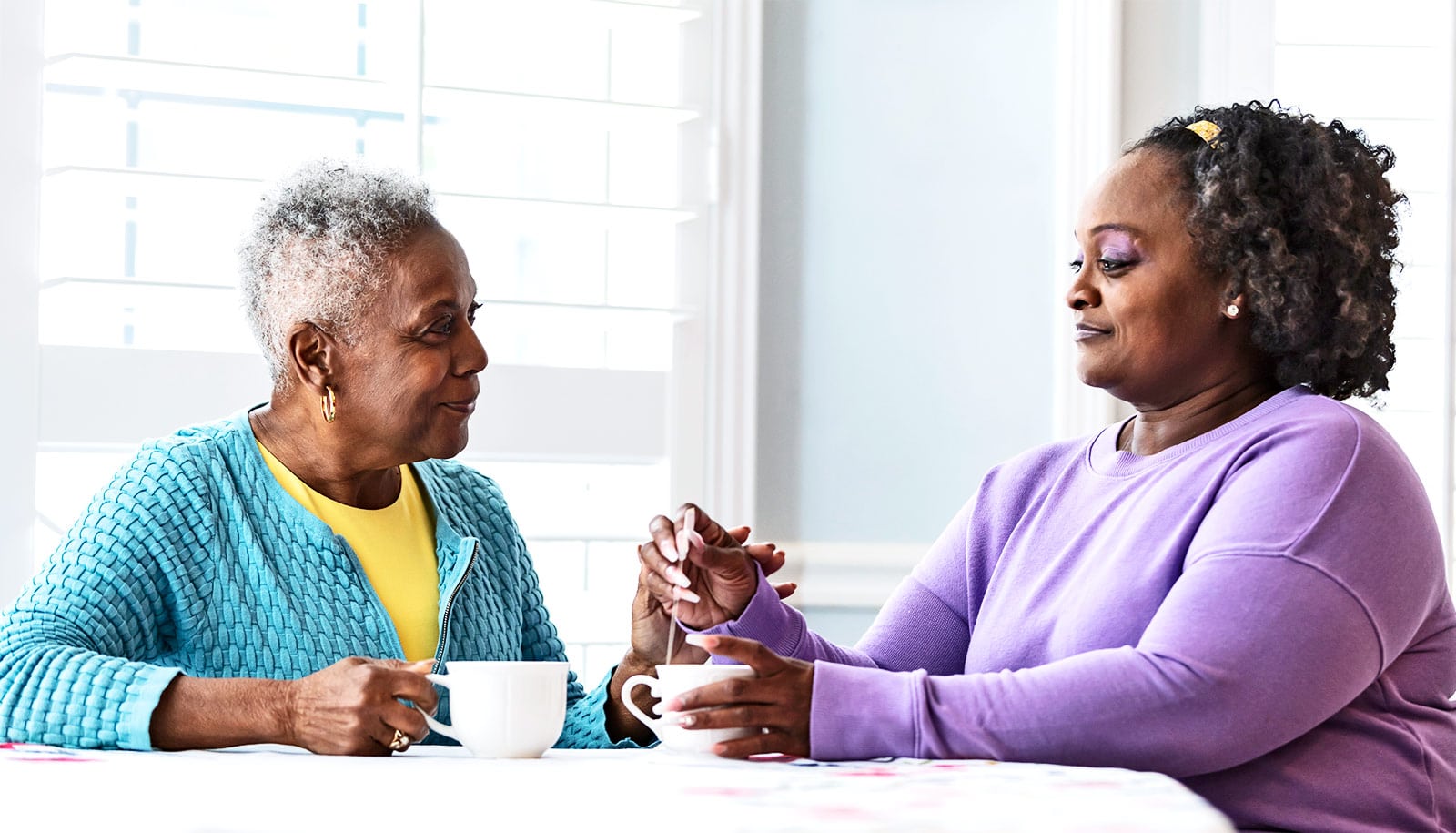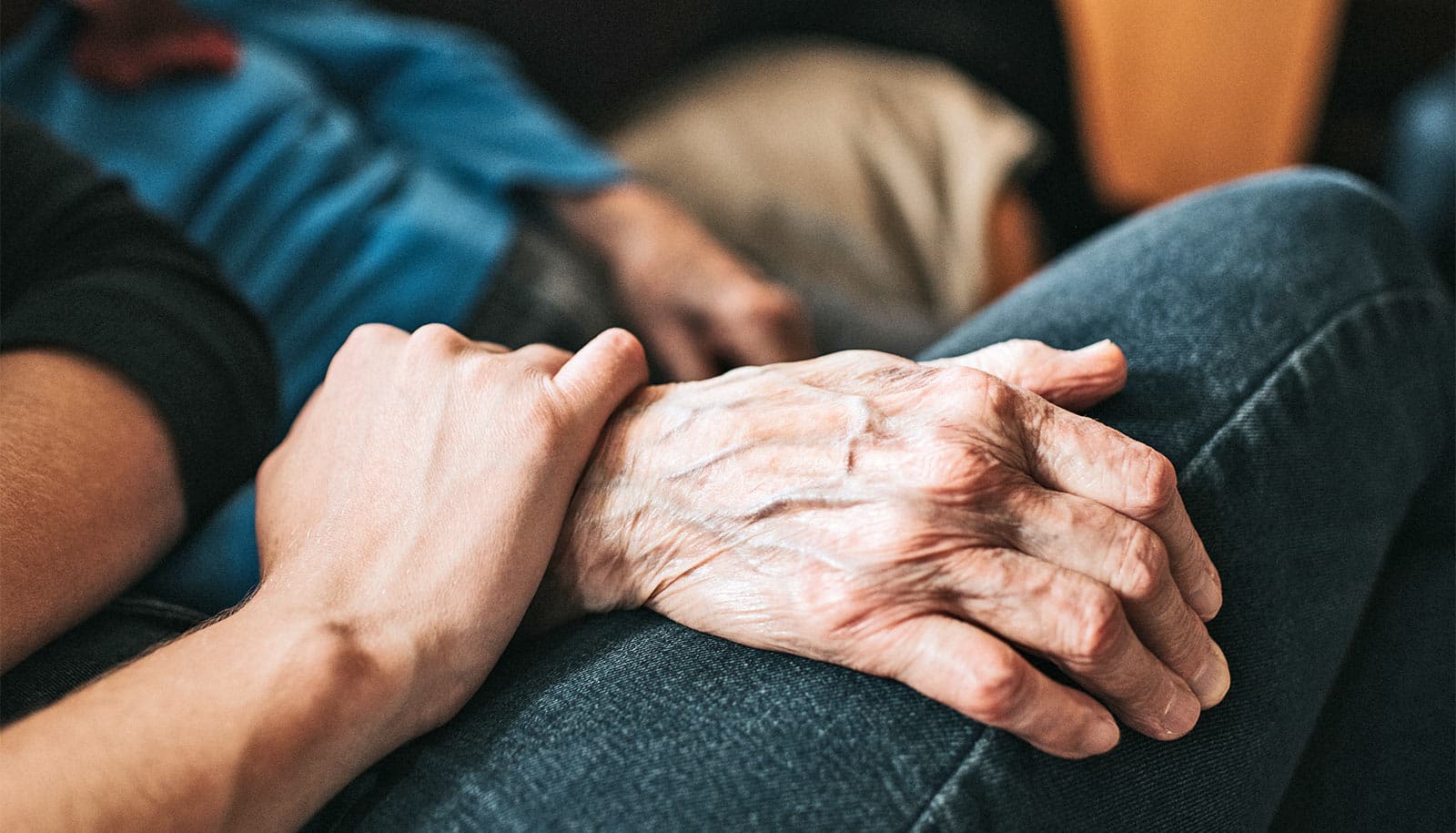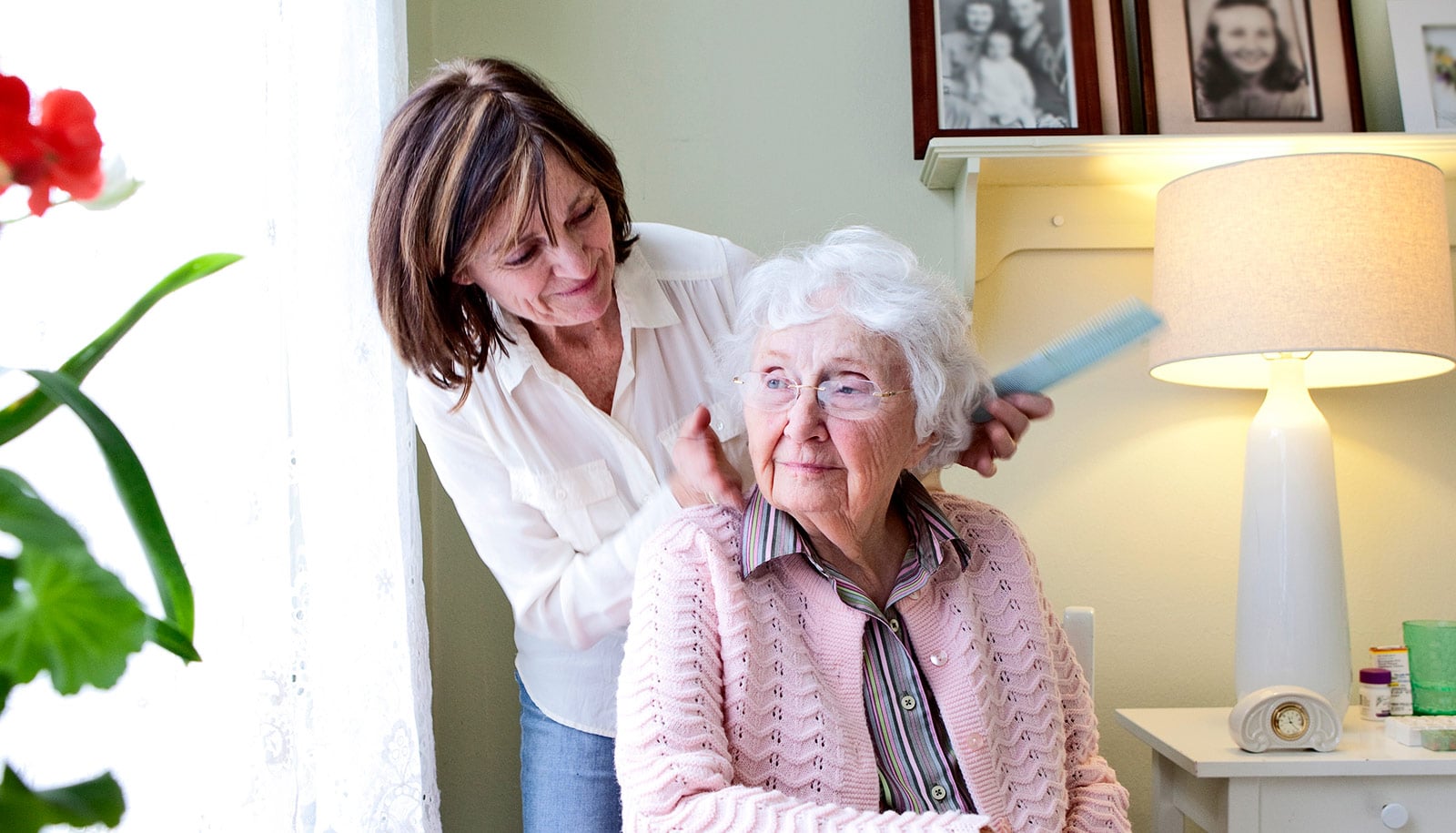New research finds those who care for family members with Alzheimer’s experience poorer health and increased cellular aging.
Brittany Butts understands that for many families, Alzheimer’s comes as a double burden. As a teenager, she watched not only her grandmother’s mental decline from the disease but also her aunt’s struggles as the primary caregiver.
“When I would come visit, I would stay with my grandmother and give my aunt a break,” says Butts, now an assistant professor in Emory Uniersity’s Woodruff School of Nursing. “I could tell that having that time back for herself was a big deal.”
The stakes were high for both women. Butts says her grandmother once nearly set the house on fire with a microwave and had to be closely watched to prevent similar incidents.
“People with Alzheimer’s can wander, can get confused, and hurt themselves,” she adds.
“They’re just not themselves any more. Someone has to be there with that person at all times. Just being able to be yourself is something a lot of caregivers don’t have time for.”
New research by Butts and her colleagues shows that the stress of caregiving is more than mental—that it can actually cause the caregiver’s cells to age faster.
At a time when one in nine adults ages 65 or older in the US lives with Alzheimer’s or related dementia, the stress on caregivers is emerging as a health problem in itself.
“The most common caregivers are either a spouse or a child, usually a daughter,” Butts says. “If it’s a spouse, they might be sharing a bed or a room. There could be a lot of sleep lost, for example. Or a daughter might be caring for both her younger children and her older parent. There are a lot of health impacts from things like stress, lack of sleep, and not having time for self-care, such as diet and exercise.”
In her recent study in Alzheimer’s & Dementia, Butts found that caregivers who reported more perceived stress had measurably poorer psychological health as well as shorter telomeres, the structures of repeated DNA sequences and proteins that protect the ends of human chromosomes. Because telomeres are known to shorten with stress and with age, they are considered biomarkers for biological aging as well as cardiovascular disease risk.
“Physiologically, stress can have long-term effects,” she says. “It can increase the burden on your cardiovascular system. It can increase your blood glucose, disrupt your sleep and decrease your immune response. Your body’s in this fight-or-flight response all the time and doesn’t have time to take care of itself. This kind of chronic stress has been linked to faster biologic aging, where those cells in your body that have this normal clock can actually deteriorate earlier. That can lead to other health risks.
“If you stress anything, it’s gonna wear out, whether it’s a rubber band or your favorite pair of jeans. Our cells do the same thing.”
Butts and her colleagues focused on Black caregivers, a population considered particularly at risk, who often report less satisfaction in their role, compared to white caregivers. While they’re more likely to be part of a social support network, they also have fewer socioeconomic resources. The researchers measured a panel of biomarkers in 142 Black family caregivers from the Atlanta area, including the stress-related hormone cortisol as well as markers of biological risk pathways activated by chronic stress.
Psychological stress was measured through questionnaires. Telomere length was measured to capture cumulative biological aging and cellular wear and tear. They found greater feelings of stress were associated with worse psychological health, anxiety, depression, poorer sleep, shorter telomere length, and greater cardiometabolic risk markers.
Butts says the findings are a strong basis for providing focused interventions and support.
“If you have to be constantly taking care of a loved one with dementia, you may not have time to exercise every day. Or you may not have time to visit a support group. So one step in our research is finding those physiological pathways, but another is finding more creative ways to provide support for the caregivers where they would have time to address those stressors, find ways to meditate or whatever they need to do to reduce that stress and disrupt those pathways.”
Beyond that need, Butts says a larger study could probe how the stress effects she found are compounded by health disparities found in the Black subjects of her research.
“The harder it is for someone to get access to health care or resources, the higher the burden of health care can be,” she says. “If you’re doing it alone or not getting the right treatment, it can compound that stress and perhaps long-term cardiovascular risk.”
Source: Emory University



